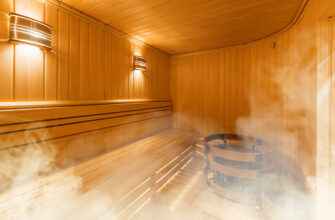Anxiety is a normal human response to stressful situations, but when it becomes chronic, it can significantly affect your quality of life. If you’re currently experiencing anxiety, it’s important to know that you’re not alone, and there are steps you can take to manage it. In this article, we’ll share 12 tips to help you stop feeling anxious right now.
1. Take a Deep Breath
When you’re feeling anxious, your breathing becomes shallow, which can make your anxiety worse. Taking deep breaths can help you relax and calm your mind. Breathe in deeply through your nose, hold it for a few seconds, and exhale slowly through your mouth.
2. Practice Mindfulness
Mindfulness is the practice of being present in the moment and fully engaged in what you’re doing. It can help you manage your anxiety by reducing stress and increasing relaxation. You can practice mindfulness by paying attention to your breath, body, and surroundings.
3. Exercise
Regular exercise can help reduce anxiety by releasing endorphins, which are natural mood-boosters. Even a short walk or a few minutes of stretching can make a big difference in how you feel.
4. Get Enough Sleep
Sleep is essential for mental and physical health. When you don’t get enough sleep, your body produces more stress hormones, which can make your anxiety worse. Aim for 7-9 hours of sleep per night.
5. Limit Caffeine and Alcohol
Caffeine and alcohol can both increase anxiety symptoms. Limit your intake of these substances, and try to avoid them altogether if possible.
6. Talk to Someone
Sharing your feelings with someone you trust can help you feel less anxious. Whether it’s a friend, family member, or therapist, talking about your anxiety can help you gain perspective and find solutions.
7. Practice Gratitude
Focusing on the positive things in your life can help shift your perspective and reduce anxiety. Take a few minutes each day to write down things you’re grateful for.
8. Try Progressive Muscle Relaxation
Progressive muscle relaxation is a technique that involves tensing and relaxing different muscle groups to help reduce tension and anxiety. Start with your toes and work your way up to your head.
9. Use Guided Imagery
Guided imagery involves using your imagination to create a peaceful, relaxing environment in your mind. You can find guided imagery exercises online or through apps.
10. Practice Self-Care
Taking care of yourself can help reduce stress and anxiety. Make time for activities that you enjoy, such as reading, taking a bath, or practicing yoga.
11. Challenge Negative Thoughts
Negative thoughts can fuel anxiety. Challenge these thoughts by asking yourself if they’re really true or if there’s another way to think about the situation.
12. Seek Professional Help
If your anxiety is severe or interfering with your daily life, consider seeking professional help. A mental health professional can help you develop a treatment plan that’s tailored to your individual needs.
Conclusion
Feeling anxious is a common experience, but it doesn’t have to control your life. By practicing relaxation techniques, self-care, and seeking professional help when needed, you can manage your anxiety and start living the life you want.











